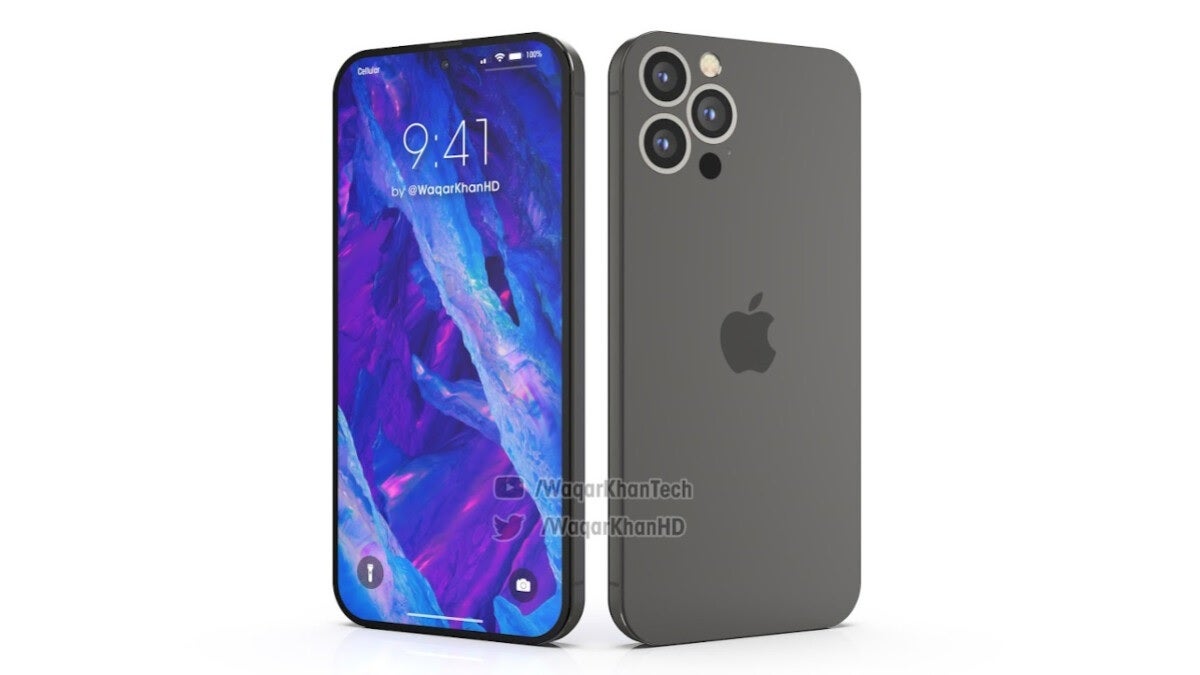Apple iPhone 14 series could feature improved battery life; here's why

Apple beefed up the batteries on its iPhone 13 series to the point that the iPhone 13 Pro Max was able to browse for nearly 19 hours on one charge in our recent battery test. Apple took the 3687mAh battery on the iPhone 12 Pro Max and replaced it with a 4352mAh battery on the iPhone 13 Pro for an 18% hike. The big question in many iPhone users' minds is whether Apple will continue increasing battery capacity on the iPhone 14 series.
Apple could equip the upcoming iPhone 14 series with improved battery life
According to Taiwan's Economic Daily News (via 9to5Mac), Apple's decision to switch the foundry building the 5G chips for the upcoming iPhone 14 line could result in larger battery capacities for the series. The switch is being made because of TSMC's manufacturing process which is outperforming Samsung Foundry's capabilities. These chips are being built using TSMC's 6nm process node.


Using a 5G RF chip built using the 6nm process node should result in energy efficiency. And the smaller size of the component will give Apple some additional space to increase the size of the battery in each unit without having to give up anything in the way of performance.
However, we wouldn't expect to see Apple take another huge leap in battery capacity for its upcoming phones. After Apple hiked the battery capacity on the iPhone 11 Pro Max 25% from 3174mAh to 3969mAh, it backed off with the iPhone 12 Pro Max to 3687mAh. Apple was counting on the improved energy efficiency from the first 5nm A-series chip and other optimizations to improve the battery life.
On our web browsing test, the iPhone 12 Pro Max browsed the web for 14 hours and 6 minutes, improving from the 12 hours and 54 minutes of browsing time tallied by the iPhone 11 Pro Max battery. But with the current Pro Max model able to browse on a single charge for up to 19 hours, any advance we see this year could be smaller on the Pro variants.
Remember, Apple had to beef up the batteries for the iPhone 13 Pro models since they offered a 120Hz refresh rate. If Apple does add the ProMotion display that updates 120 times a second to non-Pro models this year, it might offer a larger percentage increase in battery capacity to the iPhone 14 and iPhone 14 Max. This admittedly might not be likely, but it is a possibility.
The technology for smartphone batteries continues to improve allowing phone manufacturers to increase the length of time that handsets can run between charges. The flip side to this is the race to develop faster-charging platforms. This is one area where the iPhone can use some improvement.
Apple needs to improve its charging speeds for the iPhone 14 line
Our recent test of five phones (Galaxy S22 Ultra, Galaxy S21 Ultra, Pixel 6 Pro, OnePlus 10 Pro, and the iPhone 13 Pro Max found that the latter finished fourth ahead of only the Pixel 6 Pro. Apple undoubtedly is concerned with user safety, but we can't believe that companies offering fast charging are just being reckless. If Vivo can put a 120W battery into the iQOO 7 (which charges its 4000mAh battery from 0% to 100% in 18 minutes), you might ask yourself whether Apple could improve on its 27W charging speed.
We're sure that if Apple were to match the 45W fast charging speed available for the soon-to-be released Samsung Galaxy S22 Ultra, iPhone users might be satisfied to see Apple take the initiative to improve on its fast charging technology. Of course, your mom might have said once or twice that if your friends jumped off the Empire State Building, would you follow them? But we are talking about a competitive industry where manufacturers often follow the competition.
With Samsung Foundry losing Apple as a customer for 5G chips, it is another problem piled on the chip builder. Yesterday we passed along a report out of Korea that said Qualcomm is looking to replace Samsung with TSMC for production of its Snapdragon 8 Gen 2 Application Processor (AP).
While no announcement has been made concerning such a switch, Samsung Foundry's extremely low 4nm yield rate of 35% (compared with TSMC's 70%) has to be alarming to Qualcomm. The chip designer has switched between the world's top two independent foundries to produce its flagship chips before.
Follow us on Google News














Things that are NOT allowed:
To help keep our community safe and free from spam, we apply temporary limits to newly created accounts: